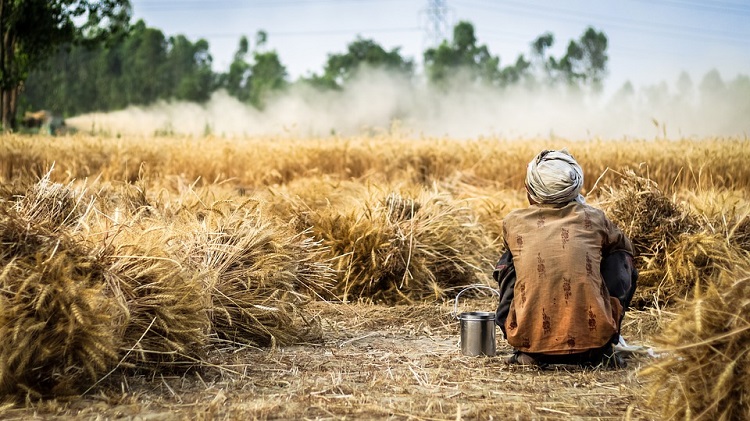NRI has been finding innovative solutions to the global problem of food loss and waste for well over a century. Our scientists are constantly inventing, researching and developing new ways to reduce crop losses, improve food safety and nutrition, streamline transportation, reduce plastic packaging and pollution, and tackle pests that ruin harvests and spread disease. This year saw the first ever International Day of Awareness of Food Loss and Waste, a good opportunity for NRI to share some of its most exciting projects, old and new.
In the first of this series of four short articles for December, NRI’s Deputy Director Professor Ben Bennett, whose career with NRI spans some 30 years, much of it spent overseas as an agriculture and trade policy advisor in Namibia and the Philippines, talks about FLoW – the Food Loss and Waste Reduction development programme that he heads up. FLoW aims to measure food loss and waste, develop technical solutions for reducing it, assess upgrading opportunities and provide guidance to researchers and practitioners.
“Globally, around 14 percent of food that is produced is then lost from the postharvest stage up to, but excluding, when it gets sold. A lot of this food is highly nutritious and when it’s lost or nutritionally compromised, it affects the diets of millions of people, including in regions where undernutrition and micronutrient deficiencies are endemic. The magnitude of the issue led the authors of the Sustainable Development Goals (SDG) to recommend: “by 2030, halve per capita global food waste at the retail and consumer levels and reduce food losses along production and supply chains, including postharvest losses (Target 12.3)” and a number of new initiatives have since been launched in response.
response.
NRI has many years of experience in this field of research, and we know that food loss and waste is a complex challenge, and that losses and waste are difficult to define, measure and tackle. We have to take into account factors such as changing patterns of economic development, rural-urban migration and behavioural responses by consumers to new food concepts. All of these have an impact on society and economies at all levels. Interestingly, in less developed economies, food losses can be higher and have a greater impact than food waste, but this situation is constantly changing with economic and market development.
Food loss and waste reduction can also present opportunities for technical and management innovation to add value and encourage better use of existing resources. However, we have found that context is important, and the outcomes of systemic change are unpredictable. Improved use of by-products can add value to a chain, but before embarking on these new uses, care is needed to ensure that no vulnerable groups are dependent upon that waste. Improving food standards can benefit some consumers at the expense of others which is not solving the problem, rather simply ‘kicking the can down the road’, something to be avoided at all costs.”
Professor Bennett says that NRI’s research and practice in this area has revealed the scope and extent of the problem and its scientists have developed a range of technical, practical and theoretical solutions taken up mainly in low- and middle-income countries particularly in sub-Saharan Africa. “We have focused our work on rural and peri-urban agriculture, durable and perishable commodities, on pre- and post-harvest causal factors and on specific points within value chains such as production, harvesting, drying, processing, storage, marketing and consumption. We target a wide range of beneficiaries at different stages of the value chain with an emphasis on small-scale producers and SMEs. NRI emphasises the importance of addressing the under-researched impacts and potential benefits of actions related to FLW on the poor and vulnerable, particularly girls and women.”
To find out more about:
NRI’s Development Programme – FloW

